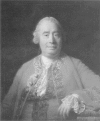Hume, Mill, Hill, and the sui generis epidemiologic approach to causal inference
- PMID: 24071010
- PMCID: PMC3888277
- DOI: 10.1093/aje/kwt223
Hume, Mill, Hill, and the sui generis epidemiologic approach to causal inference
Abstract
The epidemiologic approach to causal inference (i.e., Hill's viewpoints) consists of evaluating potential causes from the following 2, noncumulative angles: 1) established results from comparative, observational, or experimental epidemiologic studies; and 2) reviews of nonepidemiologic evidence. It does not involve statements of statistical significance. The philosophical roots of Hill's viewpoints are unknown. Superficially, they seem to descend from the ideas of Hume and Mill. Hill's viewpoints, however, use a different kind of evidence and have different purposes than do Hume's rules or Mill's system of logic. In a nutshell, Hume ignores comparative evidence central to Hill's viewpoints. Mill's logic disqualifies as invalid nonexperimental evidence, which forms the bulk of epidemiologic findings reviewed from Hill's viewpoints. The approaches by Hume and Mill cannot corroborate successful implementations of Hill's viewpoints. Besides Hume and Mill, the epidemiologic literature is clueless about a plausible, pre-1965 philosophical origin of Hill's viewpoints. Thus, Hill's viewpoints may be philosophically novel, sui generis, still waiting to be validated and justified.
Keywords: David Hume; John Stuart Mill; causality; evidence; inference; lung cancer; philosophy; tobacco.
Figures



References
-
- Frost WH. Epidemiology (1927) In: Maxcy KF, editor. Papers of Wade Hampton Frost, MD: A Contribution to Epidemiological Methods. New York, NY: Common Wealth Fund; 1941. pp. 493–542.
-
- Frost WH. In: Snow on Cholera. Snow J., editor. New York, NY: Hafner Publishing Company Inc; 1965. pp. ix–xxi. Introduction.
Publication types
MeSH terms
Grants and funding
LinkOut - more resources
Full Text Sources
Other Literature Sources

